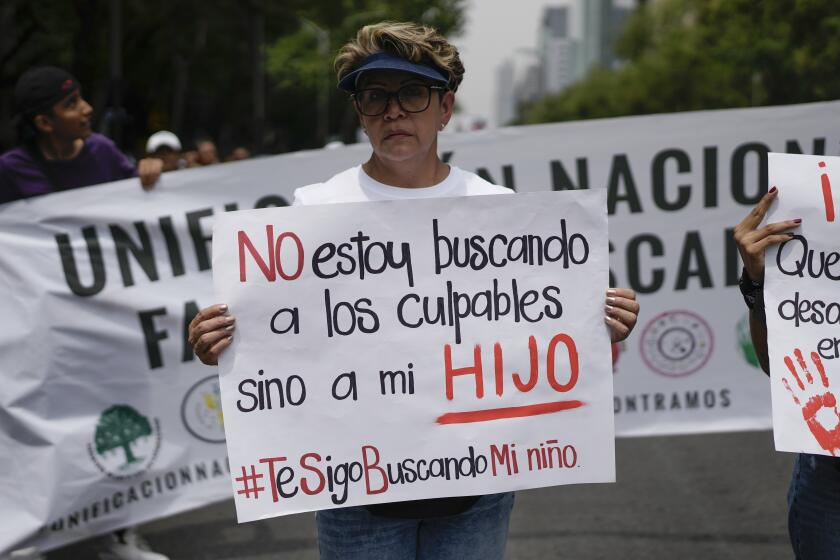Pharmacists New Players in Abortion Debate
Pharmacist Matt Hartwig got a call recently from a drugstore he owns in rural Missouri. A woman had come in with a prescription for the “morning-after” pill, which can prevent most pregnancies if taken within three days of unprotected sex.
The pharmacist on duty had refused to sell it to her.
Although the federal government classifies the pill as an emergency contraceptive, the pharmacist said he considered it a form of abortion. He told the woman he was morally opposed to providing it. And Hartwig backed him up.
“As a pharmacist, you’re required to do no harm, just like nurses and doctors are,” he explained. “I believe you have a right not to fill a prescription if you think it will harm the patient or the unborn child.”
Missouri lawmakers now are weighing whether to guarantee that right in state law.
Legislation drafted here and in at least five other states would let pharmacists refuse to dispense the morning-after pill without fear of losing their jobs.
Each bill is slightly different, but most aim to shield pharmacists from lawsuits and protect them from disciplinary action -- both from their bosses and from regulatory boards -- if they refuse to provide the pill as a matter of conscience. A few offer the same protection to pharmacists who object to other contraceptives, such as birth-control pills.
Abortion-rights advocates say they are baffled by the flurry of legislation in Indiana, Michigan, Minnesota, North Carolina and Washington, as well as Missouri. In their view, even antiabortion groups should support easy access to the morning-after pill because it reduces unwanted pregnancies and thus cuts down on surgical abortions.
But those who believe life begins at conception view the high-dose hormones as baby killers, since they can block fertilized eggs from implanting in the uterus.
Addressing a Missouri legislative committee this week, Republican state Sen. John Cauthorn declared that pharmacists should not fear punishment for having enough “semblance of character to protect the rights of the unborn.”
Abortion-rights advocates counter that pharmacists should not be second-guessing patients and their physicians. “They have an ethical obligation to meet the needs of the patient,” said Susanne Martinez, vice president of Planned Parenthood. “We don’t want to see barriers put in front of women who need a prescription filled. That could hurt a lot of people.”
Marketed as Plan B and Preven, morning-after pills have been sold in the United States since 1998, with modest success. Barr Pharmaceuticals, which recently bought the rights to Plan B, estimates emergency contraception sales at $12 million to $15 million a year.
Wal-Mart does not sell the pills. “It’s a business decision, not a moral judgment,” a spokeswoman said. Several other major chains, including Walgreen’s and CVS, stock Plan B but allow pharmacists to opt out of filling prescriptions -- as long as they refer the patient to a colleague who will provide the pills.
In January, however, the Eckerd drugstore chain fired a Texas pharmacist for refusing to sell the emergency contraceptive to a rape victim, saying he had violated company policy.
That incident outraged antiabortion groups -- and made legislation to prevent such firings a priority.
“Pharmacists are now on the front line of the abortion issue,” said Denise Burke, staff counsel for Americans United for Life, a national antiabortion group. “No one should ever be put in the position where they have to violate their conscience or risk losing their job.”
The debate could be moot within a few months. Five states, including California, have passed laws allowing pharmacists to dispense emergency contraception without a prescription. And federal officials are considering letting Plan B be sold over the counter nationwide.
Yet antiabortion activists continue to press the issue. They point out that at least 45 states shield doctors and nurses who refuse to participate in abortions. Only South Dakota explicitly extends the same protection to pharmacists.
Here in Missouri, pharmacists are divided on the legislation.
The bill would allow pharmacists to refuse to transfer a contraceptive prescription to another drugstore. That strikes Darran Alberty as unfair to patients: “At least you should offer to find another pharmacy in town that would fill it,” he said from behind the counter at D&H; Drug in Columbia, Mo.
Ron Fitzwater, executive director of the Missouri Pharmacy Assn., says he’s also concerned about the bill’s effect on patients in rural areas. Some small towns have only one druggist, and some women don’t have the transportation to get to a bigger city. With Plan B, any delay in getting the drug could diminish its effectiveness.
“We support pharmacists’ rights,” he said. “The key is ensuring patients’ access.”
Hartwig, who says he opposes abortion, is unsure about the bill himself. He personally does not view Plan B as abortion; he considers it contraception. So when the pharmacist at his rural drugstore refused to dispense the hormone pill, Hartwig was sympathetic -- but he made sure another pharmacist on duty was willing to take the job.
Otherwise, he said, he might have driven out himself to make sure the patient got the pills she needed.
More to Read
Start your day right
Sign up for Essential California for news, features and recommendations from the L.A. Times and beyond in your inbox six days a week.
You may occasionally receive promotional content from the Los Angeles Times.






